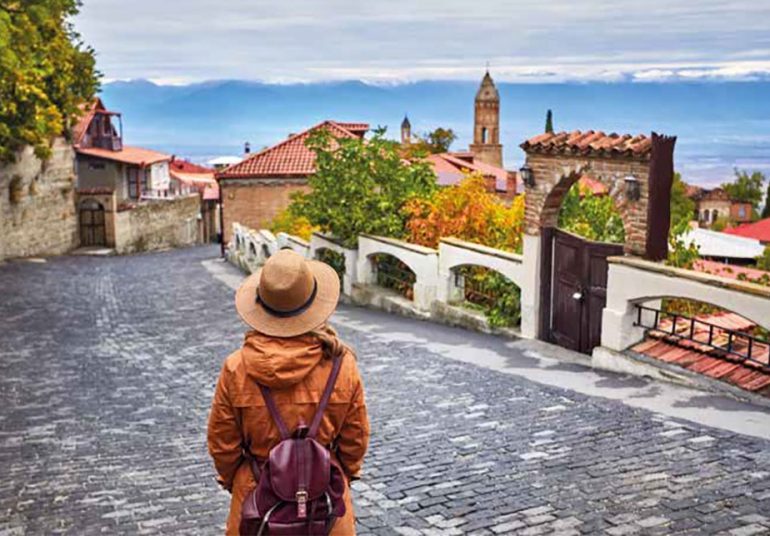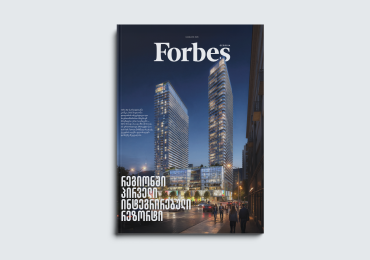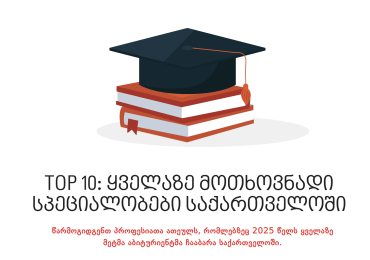Tourism and travel constitute one of the world’s leading industries, directly contributing more than $ 2.5 trillion (3.6% of GDP) to the global economy. Countries with the highest number of international tourists are France, the United States, Spain, China, Italy and the United Kingdom. Smaller and lesser-known tourism markets have become more active recently. As for Georgia, it ranks 26th among 185 countries with a $ 2.8 billion income from tourism (6.9% of GDP). Global leaders in this category include tiny countries such as the Maldives (39.6% of GDP), which has a population of 417,000 and is visited by 1.5 million tourists, and the British Virgin Islands (35.4% of GDP), which has a population of just 28,000 and 345,000 tourists. In these small states, the economy is directly attached to tourism, while in Georgia, the economy is more diverse, as is the case in developed countries. With regards to the ratio between the country’s population and the number of tourists, Georgia is once again only trailing behind the aforementioned Maldives and British Virgin Islands, as well as other microstates that are dependent on seaside tourism, such as Seychelles, Bahamas and Malta. Georgia, a country of 3.7 million people, was visited by 4.1 million tourists in 2017, while the number of international visitors who spent less than 24 hours in the country was 7.9 million. By 2025, this number is expected to increase to 11 million. The growth in the number of foreign visitors is fuelled by the country’s liberal visa policies and a stable environment. Nationals of more than 100 countries can travel to Georgia without a visa, and we are ranked 7th on the list of the world’s safest countries. Between 2006 and 2017, Georgia recorded the world’s third-highest growth rate in visitor numbers.
The World Chooses Georgia
As a country, we may be larger than the aforementioned island states, but we are still a small country on the world map. Unlike the countries that depend purely on seaside tourism, we have a diverse potential for development in this sector: history, nature, cuisine, viticulture and hospitality. Georgia has high-quality international seaside and mountain resorts.
Tourism in Georgia takes place during all four seasons. In the summer, we all think of Batumi, and this applies not only to Georgians. The city has become the regional leader in the hospitality industry. Visitors are coming in growing numbers from all over the world. Batumi caters to the tastes of even the most demanding foreign tourists through its stunning nature, excellent climate, one of the world’s longest seaside boulevards, as well as a broad variety of recreational and entertainment infrastructure: international hotel brands, casinos, restaurants, cafes, bars and night clubs. Dubbed the Las Vegas of the Black Sea, Batumi has indeed become a gambling business hub. The city with a population of only 180,000 hosts up to 2 million tourists each year. In this regard, it rivals global gambling centres such as Monaco (8.7 tourists per capita) and Macau (24.8 tourists per capita).
The winter season sees tourists flocking to the mountain resorts of Bakuriani and Gudauri. Outstanding alpine resort projects include Kokhta-Mitarbi, which includes construction of an international-standard resort complex next to the Kokhta mountain in Bakuriani, as well as the round-the-year ski resort of Goderdzi, which is located at an altitude of 2000 m above sea level. Another unique discovery for tourists is the highland region of Tusheti, which was included in CNN’s list of “12 best places you’ve never heard of.”
When talking about mountain tourism, we also cannot ignore Svaneti. The local nature and the unique Svan towers are unforgettable for foreign visitors. Located at an altitude of 2200 m above sea level, Ushguli has been named by the BBC as the highest inhabited village in Europe. In Tskaltubo, Abastumani and Borjomi-Likani, we have health and spa resorts with great potential. There are excellent opportunities for wine tourism in a country that has an 8000 year history of winemaking and claims the title of the birthplace of wine. Few people know that our country also has beautiful canyons. The Martvili canyon recreates the atmosphere of the Jurassic period, and contains the world’s third-largest number of prehistoric animal remains. The Okatse canyon stands out through its stunning waterfalls. Each region has its own unique attraction, and for that reason, foreign visitors are choosing Georgia.
And finally, Tbilisi – included among the 10 cities with highest tourist potential by the renowned American travel portal Tripadvisor. It is Georgia’s historic and cultural centre, as well as the regional business capital. Over the last few years, Tbilisi has become a place of international importance with regards to real estate development. Premium-class business and trade centres are being constructed. The hospitality sector has registered impressive growth. Up to 20 new hotels are currently being planned and built under international brand names. High-quality branded hotels in Tbilisi are booked to 72% of their capacity. Working with global hotel networks is the main focus for the Alliance Group.
Sectoral Alliance as a Successful Business Model
Tourism and real estate are sectors that support each other. There are more than 27,000 hotel rooms in our country today, and the number will grow by up to 7000 units over the next 5 years. Along with hotel development, the apartment hotel business plays a significant role in tourism today. In this case, the apartment owners are mainly motivated by commercial interests. With this in mind, we began implementing the apartment hotel concept in Georgia in 2008. In 2015, we expanded our strategy and began working with international hotel brands. The first such project is the Alliance Palace multifunctional complex in Batumi, which we are carrying out in partnership with Marriott International. It will combine high-quality apartments with a Courtyard by Marriott hotel. A similar concept is being followed with the Alliance Privilege multifunctional complex, which will house the first 5-star Marriott hotel in Batumi. In 2017, the apartment hotel concept was supplemented with the residential component in the shape of the Alliance Highline project in Tbilisi, which we are carrying out in partnership with Wyndham Worldwide, and which will include apartments, as well as a Wyndham Garden hotel. We are confidently developing our business. We are the first ones to invest in the Goderdzi highland resort, where in two years we will be opening a 100-room hotel under Europe’s fastest-developing hotel brand-Ramada.
We began operating on the Georgian construction and development market in 2005. Our first project was Batumi’s first modern residential building. Since then, we have invested more than $200 million in projects that have already been completed. A further $210 million has been invested in the four ongoing projects involving multifunctional complex franchises, which we are carrying out in partnership with renowned hotel brands. They will include a combined total of 600 hotel rooms and 2800 hotel-type apartments.
The development of the apartment hotel business in Georgia is based upon a sound economic foundation. As the number of tourists in the country grows each year, the apartments represent a profitable investment for the owners. For example, starting prices at our first branded multifunctional complex, the Alliance Palace, have already increased by 210%. Additionally, owners benefit from the services of an international management company, which manages apartment rentals. Not only do the owners receive a quick return on their investment within 4-5 years, but the value of their property increases at the same time. The liberal business environment in Georgia has resulted in 80% of the buyers of our apartments being foreign nationals. Registering real estate ownership takes 15 minutes, property taxes do not apply, and non-residents purchasing an apartment worth $35,000 or more can receive a residency permit.
The fact that Georgia is becoming an interesting and important destination on the global tourist scene is reflected in the country becoming part of RCI’s global vacation exchange network, which includes 4 million member families. RCI’s arrival has begun a transformation of the Georgian hospitality industry. The business model of the partnership between the Alliance Group and RCI looks as follows: owners of the exclusive properties developed by our firm get the opportunity to temporarily exchange their apartment for one of more than 4300 international-class resorts in 110 countries. Alliance Group properties enjoy the benefits of RCI’s Gold Crown status, meaning access to an additional 200 elite holiday locations. In order to enjoy all the advantages of the property exchange programme offered by the Alliance Group, one must become a member of the Alliance Privilege Club. Upon the payment of the annual membership fee, members will indicate their desired vacation time and destination, as well as the number of family members, and will be automatically offered a broad choice of options by the universal system, which is tailored to each specific customer’s preferences. Those who do not use the vacation exchange programme for a year, will receive additional points that will allow them to vacation at an even better resort the next year, or to increase the vacation period. The RCI exchange system works even if construction of the complex has not been completed yet. For instance, owners of Alliance Highline apartments will be able to use the exchange system in advance and vacation at their desired resort. Advertising campaigns for the Alliance Group resorts and our country have already begun on various RCI platforms, and the first vacationers from Georgia will be able to benefit from this global network during the summer of 2018.
The partnership with RCI represents the latest stage in our company’s development. It is a historic event for the Georgian holiday industry, and our customers will soon be able to witness this for themselves.
Author: Akaki Songulia – Alliance Group co-founder and Director General.
Forbes Georgia: სარედაქციო გუნდი

















